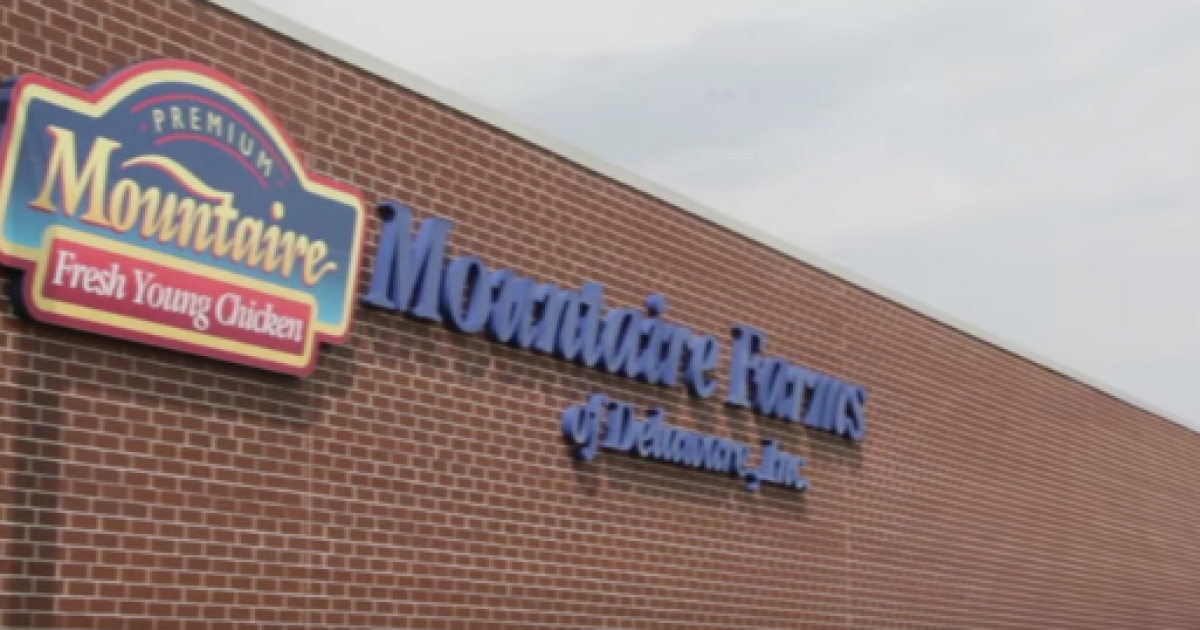
On August 21, 2020, staff attorneys at the National Right to Work Legal Defense Foundation filed a legal brief demanding that the National Labor Relations Board (NLRB) in Washington, D.C., rescind its non-statutory “contract bar” policy. Said policy allows union bosses to impede workers from asserting their right to kick unions out of a workplace for upwards of three years.
The “contract bar” is not stipulated in National Labor Relations Act (NLRA), which the NLRB enforces. However, it is the product of previous Board decisions designed to solidify union bosses’ political privileges. The policy overturns workers’ rights, which are explicitly protected under the NLRA to carry out secret ballot elections to “decertify” (remove) a union lacking support from the majority of workers.
The brief is the latest news in a case that Delaware-based Mountaire Farms poultry processing employee Oscar Cruz Sosa filed back in February 2020. Cruz Sosa submitted a petition, which received signatures from hundreds of his coworkers, attempting to get a vote to kick out the United Food and Commercial Workers (UFCW) Local 27 union.
In addition, Cruz Sosa filed federal unfair labor practice charges back in April against the UFCW union for illegally taking dues from his and other coworkers’ paychecks, and for coming to his house uninvited and threatening him after submitting a petition for a vote to get rid of the union. He is currently receiving free legal counsel from the Foundation in filing these charges and in upholding his and his coworkers’ right to remove the union.
UFCW bossed made the case following the petition’s filing that the “contract bar” should keep Cruz Sosa and his coworkers from holding an election. However, the NLRB Regional Director in Baltimore maintained that the vote should go on because the union’s contract with Mountaire Farms contains a forced dues clause that makes the arrangement invalid.
The UFCW union lawyers were not going to accept this result and move forward with the election. Instead, they requested the full NLRB in Washington to review the Regional Director’s decision.
Foundation staff attorneys responded and demanded that the decision allowing a vote should stand. Due to fact that the union appealed the decision, Foundation attorneys countered that, if the NLRB did decide to look at the case again, it should rethink the non-statutory “contract bar” policy.
On June 23, the NLRB in Washington granted the union’s petition for a review of the case. In addition, it accepted the Foundation attorneys’ argument that the whole “contract bar” doctrine should be questioned. The NLRB then proceeded to invite the parties and amici to submit briefs. A decision on the case should be expected to be made in October.
In their latest brief, Foundation staff attorneys contend that the “contract bar,” in addition to having no legal standing in accordance to the text of the NLRA, arbitrarily restricts workers’ rights under the statute to vote to kick out a union that a majority of workers oppose. The brief reads: “Over many decades the contract bar has trapped countless employees in an unwanted exclusive bargaining relationship and made the union the employees’ master and the employees ‘prisoners of the Union.’ . . . Far from ensuring the NLRA’s neutrality concerning employees’ decision to select a union or be unrepresented, the contract bar entrenches incumbent unions by keeping them in power almost indefinitely.”
The brief also explains how the idea of a “contract bar” was rejected by the NLRB in 1936, right after the NLRA was became law, and that the contract bar wrongly keeps union officials from facing accountability when they cannot deliver on the outlandish promises they often make to workers.
The brief stressed that the only “bar” explicitly approved by the NLRA is the “election bar,” which protects unions from decertification attempts for one year after employees have participated in an NLRB election. The brief maintains that, if the NLRB refuses to completely get rid of the non-statutory “contract bar,” that bar would be restricted to a similar one-year period and should give workers a time window to vote quickly after a contract has been made effective.
The Board has seized the ballots from Mountaire workers’ decertification vote, which occurred in June and July, delaying its decision in the case. If Cruz Sosa and his Foundation staff attorneys win their case before the Board, the workers’ votes will then be tallied. If the UFCW victorious, the workers’ votes will be destroyed and never counted.
“Federal labor law, above all else, is supposed to protect the right of workers to freely choose who will be their voice in the workplace. It’s hard to imagine a policy more contrary to that than the ‘contract bar,’” commented National Right to Work Foundation President Mark Mix. “Blocking workers’ right to vote out an unwanted union for up to three years just because union officials and an employer came to a contract between themselves serves no purpose other than to insulate self-interested union bosses from being held accountable by the rank-and-file workers that the union officials claim to represent. You don’t have to look any further than the growing scandal at the United Auto Workers union to see how this works.”
“We hope that the NLRB will eliminate this coercive policy and free not only Cruz Sosa and his coworkers at Mountaire from the government-enforced grip of unwanted union bosses, but countless other employees across the country who face similar situations,” Mix concluded.



